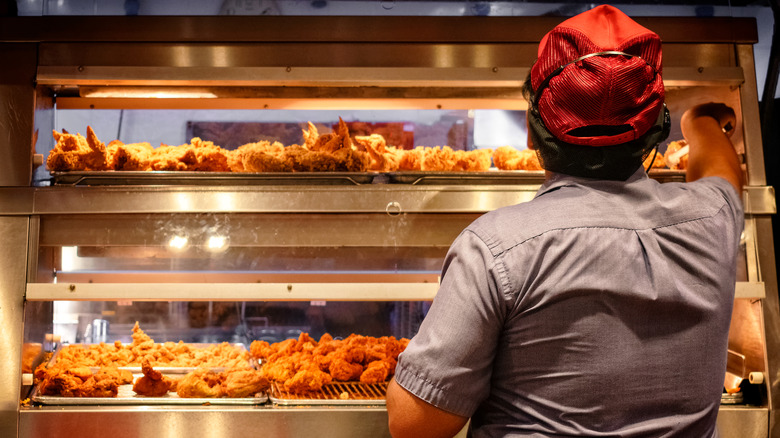Here's How A Federal Minimum Wage Increase Could Affect The Food Industry
Service industry workers have rallied around raising the minimum wage for more than a decade. In 2012, thousands of NYC fast-food employees sparked a national labor movement dubbed the "Fight for $15," which resulted in $150 billion in raises for millions of workers. But as the cost of living continues to rise in cities across the country, even $15 an hour — which is still significantly higher than the minimum wage in many states — is insufficient. Indeed, boosting hourly wages is a central demand of Starbucks workers pushing to unionize.
On July 25, Sen. Bernie Sanders and Rep. Bobby Scott introduced the Raise the Wage Act of 2023, a bill that would raise the federal minimum wage from $7.25 (a rate that hasn't increased since 2009) to $17 per hour by 2028. If the bill makes it to the White House, the first wage increase would take effect in the third month of its enactment.
"No person working full-time in America should be living in poverty," Scott said in a statement. Sanders called $7.25 an hour a "starvation wage," adding that the minimum wage would be $23 an hour had it "increased with productivity" over the last 50 years.
A five-year plan
According to a report from the Economic Policy Institute, the Raise the Wage Act would bring in a collective $86 billion in annual wages for minimum-wage workers over the next five years. The bill also aims to eliminate the tipped sub-minimum wage over seven years, eliminate the sub-minimum wage for workers with disabilities over five years, and eliminate the sub-minimum wage for youth workers over seven years.
The act would have a federal impact if it makes it to the White House, but cities such as New York have already made big moves toward raising workers' wages. In June, NYC became the first city to raise the minimum wage to $17.96, not including tips, for app-based food delivery workers.
Meanwhile, New Jersey, South Dakota, Arkansas, Alaska, Washington, Maine, Colorado, Arizona, Missouri, Florida, Nevada, and Nebraska have all voted to raise the minimum wage since 2013. If the Raise the Wage Act is successful, the other 38 states could follow suit.

